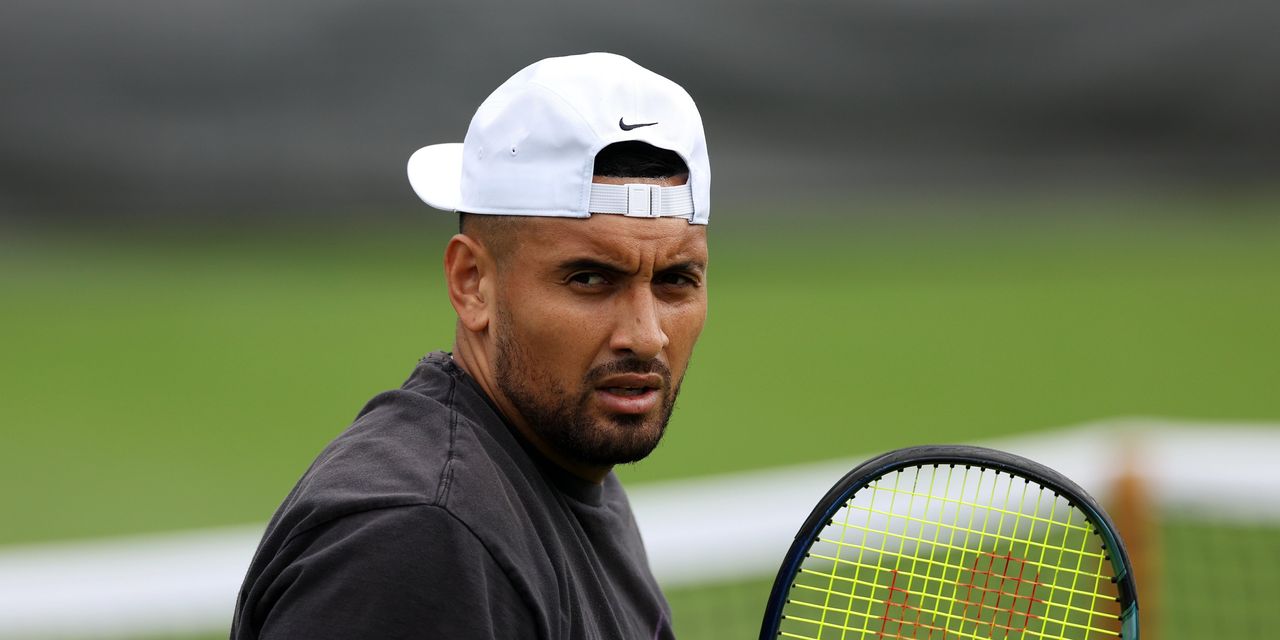The top tennis players in the world are currently competing at the US Open in New York and hoping to win some glory — and a big paycheck. If some of these players struggle to win prize money — or encounter injuries — in 2024, for the first time in professional tennis history, they’ll be guaranteed some income.
The Association of Tennis Professionals unveiled its “Baseline” plan last week, a three-year-trial that aims to ensure “a greater number of players can make a sustainable living from the sport” by providing an income minimum for its top players.
Players ranked in the top 100 will be guaranteed to make $300,000, players ranked between 101-175 will be guaranteed $150,000, and players ranked between 176-250 will be guaranteed to earn $75,000.
Not every player ranked in the top 250 will actually receive the aforementioned money — only players with those rankings who don’t earn that much through prize money will qualify for the income guaranteed by their ranking. The ATP hopes this plan will help give players more financial security.
“Being a professional tennis player comes with incredible rewards, but it’s also a challenging journey, especially for those starting their careers,” said Grigor Dimitrov, ATP Player Advisory Council Member. “Baseline is a game-changer. Knowing that we have a safety net through the minimum guarantee and injury protection pillars gives us peace of mind, allowing us to focus on our game and strive for success. This truly shows the ATP’s commitment to the players and the future of our sport.”
Dimitrov, 32, is currently ranked No. 19 in the world, and he’s made over $23 million in his career, but he knows how challenging it is for players ranked outside the highest echelons of tennis to make a living.
The Baseline plan also includes income for players who don’t participate in tournaments due to injuries, and a separate income guarantee called the “newcomer investment” that gives $200,000 to players who break into the top 125 for the first time. The ATP said it anticipates roughly 30 to 45 players will receive money through one of Baseline’s three parts each season.
That’s likely because players in the top 20 can make millions a year in prize money. But a player ranked closer to 250 can struggle to make much income after expenses.
Women tennis players are not eligible for these plans because they are not part of the ATP. The Women’s tour has a separate governing body called the WTA.
While the ATP’s income thresholds may seem like a lot of money, some professional tennis players on the ATP tour weren’t impressed.
Australian tennis pro Nick Kyrgios responded to a tweet about the ATP’s new plan, saying it’s “not enough.”
Every tennis tournament has a set amount of prize money, with the biggest tournaments — like the U.S. Open — giving out the largest prizes. Tournaments are not winner-take-all, and have payouts depending on the round in which a player is eliminated.
For example, a player who loses in the first round of this year’s U.S. Open’s women’s or men’s singles will be awarded $81,500, while the winner of the tournament will get $3 million. First-round prize money has roughly doubled at Grand Slam tournaments in recent years — to help players who don’t make much money at smaller tournaments earn a big paycheck for making it into one of the four largest ones.
Tennis players on the ATP Tour are considered independent contractors and are responsible for paying for their own travel expenses, as well as any costs related to personal coaching and training, which could get costly.
Kiranpal “KP” Pannu, a tennis player who is ranked 633 in the world, told ESPN this year that the total costs for him, his coach, and his trainer for 2022 were about $34,000, compared with his prize winnings of just $6,771.
And MarketWatch profiled pro tennis player Abraham Asaba a few years ago. Ranked No. 1,700 in the world at the time, Asaba played in tournaments that paid its winners about $2,500.
Fellow Aussie player John Millman agreed with Kyrgios that the ATP’s new Baseline plan isn’t guaranteeing enough money, because tennis players’ expenses are extremely high. If players have a coach and trainer and others on staff, they have to pay them each a salary and usually have to also pay for their travel — that can cost these players hundreds of thousands a year.
“Tennis players’ shelf life is probably 35 years old, max. Nearly all have to find another career post-tennis and unless it’s tennis coaching, are probably unqualified. Guys who are 250 in the world are probably clearing 20-30k after tax and expenses. It’s a slog,” Millman went on to say on social media.
Read the full article here



